Celebrating 2022 Bezos Scholar Community Change Projects!
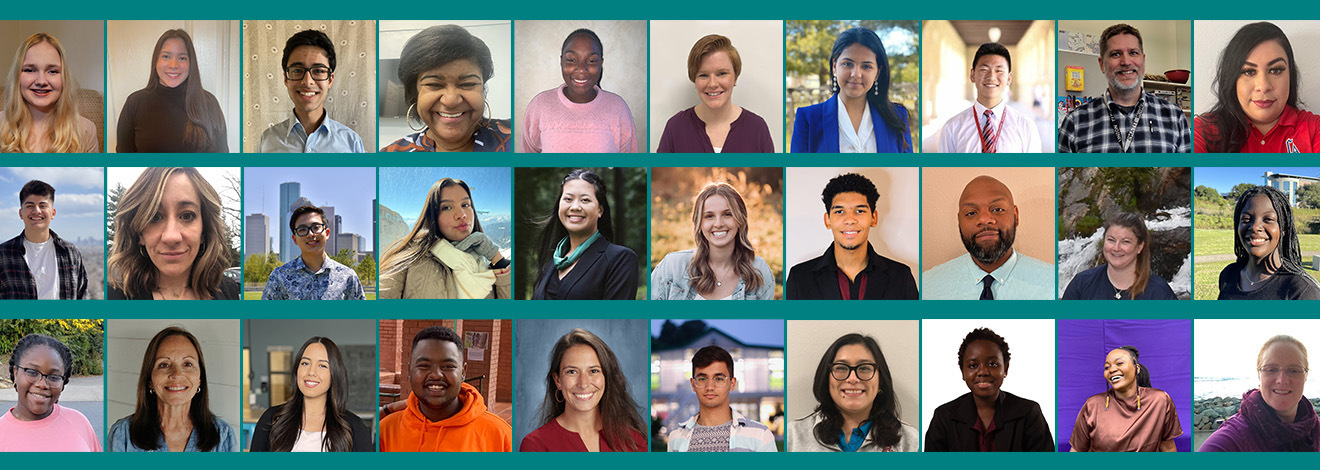
2022 Bezos Scholars have been engaging in program activities, building their leadership skills and developing their Community Change Projects for more than nine months. They have remained committed to one another, their projects, the teams they’ve built, and the missions they formed, putting in extra hours to bring their projects to life!
Projects are fresh, creative approaches to how to meet a community need. Each project is unique to the Scholars who founded it and the communities they work alongside and serve. As part of the program, every project receives $1,000 in funding, which projects can reapply for annually. For the Bezos Family Foundation, providing Scholars grant funding is a tangible way to invest in youth leadership while showing we believe in and trust young leaders.
In late January and early February, Scholar teams will showcase their projects by giving virtual presentations to the BSP community, their loved ones and other stakeholders. These presentations will be recorded and linked below when possible.
We are proud and excited to share the 2022 Scholar cohort projects and hope you will join us in celebrating these incredible student leaders, educators and teams in the shared work they are collectively doing for the betterment of their beloved communities.
New Community Change Projects Founded by 2022 Scholars
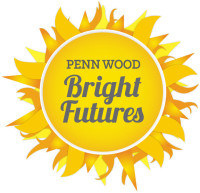
Bright Futures for All!
Project Theme: College and career access and readiness
Target Audience and Location: Sophomores and juniors at Penn Wood High School in Lansdowne, PA.
Vision: Every student has equitable access to college and career readiness tools to foster limitless possibilities for their future.
Mission: To amplify college and career readiness opportunities through interactive, online resources.
Project Description: Scholar Nhaomi Lartey and educator Scholar Ava Alexander chose to focus their project on college and career readiness, so students have more guidance and access to resources and opportunities when preparing for life after high school. To choose this focus, they identified trends in data, surveyed and talked to school stakeholders and noted that their Title 1 school is currently understaffed and resourced and can only offer one guidance counselor for every 400+ students.
Their team is preparing to launch their own custom website that will serve as an information platform and bridge to resources, specific to their school community. There will be information about college preparation and processes, career planning and opportunities available at the high school, including the dual enrollment and vocational training programs. Additionally, they plan to host a community-wide information session and celebration towards the end of the school year to raise awareness and garner more support to ensure their project is sustainable and carried forward.
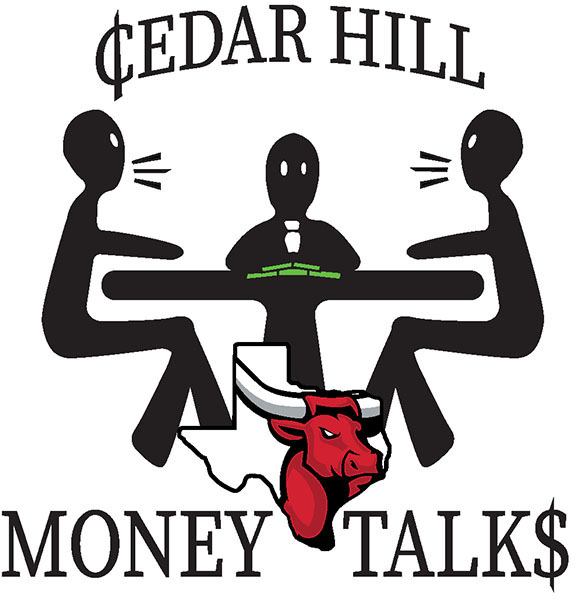
Cedar Hill Money Talks
Project Theme: Financial Literacy
Target Audience and Location: African American students at Cedar Hill High School in Cedar Hill, TX.
Vision: Generating an equipped and capable community confidently managing their finances.
Mission: To engage teens in fun, interactive workshops and an annual festival so they build real-world financial literacy skills.
Project Description: Scholar Chandler Vernon and educator Scholar Mike Clear always knew that they wanted to address teen financial literacy for their project, they just weren’t sure how. As they dove into their community engagement efforts, they learned from students that they were really interested in learning something practical that would prepare them for their future.
They teamed up with two financial institutions, a local bank and credit union, and are planning to host a series of financial literacy workshops for a smaller group of students as well as a larger one-day fair for the wider school community. Workshop content will include learning about credit, budgeting, saving and building wealth so students preparing for college and the workforce can build smart financial skills now that will positively impact them well into the future.
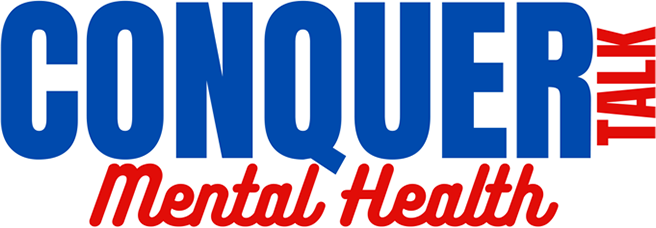
Conquer Talk: Mental Health
Project Theme: Fostering meaningful conversations, focus on mental health
Target Audience and Location: Students at Los Altos High School in Hacienda Heights, CA.
Vision: A safe, inclusive, and welcoming school environment where students can have difficult conversations and access the resources they deserve.
Mission:Through a series of structured workshops, we foster a safe environment for students to spark meaningful discussions and gather resources while learning about mental health.
Project Description: Student Scholar Eric Ye and educator Scholar Jessica Lujan had a lot of different ideas when they started their Scholar journey. They eventually aligned on the need to provide a safe place for students at their school to have meaningful conversations to foster connection through shared experiences.
This year, they chose mental health as a specific theme, noting it might change in future years based on the needs of students. They identified the theme as a current high need through surveying and talking directly to students. Many students they want to engage identify as people of color and may be the first in their families to seek help and support to improve their mental health. The team they are building is planning a one-day event with various partners to host and facilitate a series of culturally relevant workshops and conversations about mental health as well as provide education and resources.
Watch this team's project presentation at our virtual showcase event!
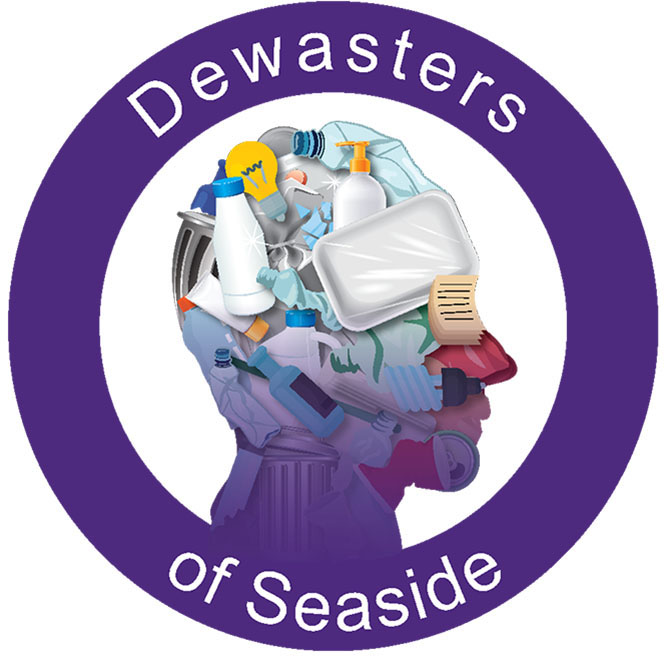
Dewasters of Seaside
Project Theme: Environmental justice – waste reduction
Target Audience and Location: Seaside residents in Seaside, CA.
Vision: A community of residents committed to reducing their waste for the collective betterment of the people, town and planet.
Mission: Through education about how garbage in landfills contributes to climate change, we inspire our community to change their attitude and habits, so they actively reduce their waste.
Project Description: Scholar Jackie Ballasteros Martinez and her educator Scholar Sarah Lester Guzmán focused their project on waste reduction, something they both were passionate about long before becoming Scholars. They are both members of their school’s Ocean Defenders Club and Jackie is known to carry around reusable water bottles, bags and cutlery to ensure she is doing her part to reduce waste.
This team made sure they built partnerships with local community organizations already engaged in sustainability efforts and decided their target audience for their founding year would be the mobile home community Jackie resides in. They are focused on building relationships with community members to build trust while surveying what they already know and practice, related to reducing their household waste and climate change. Based on what they learn, they are planning a community carnival full of healthy food, games, prizes and activities to provide education, information and resources in a fun, family friendly environment so residents become active participants in reducing their household waste and making a positive impact on climate change.
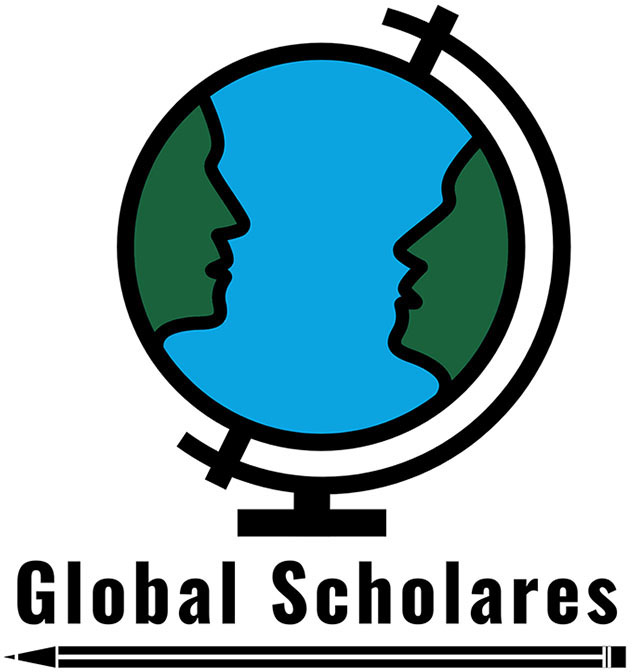
Global Scholares
Project Theme: Multilingual learner inclusion
Target Audience and Location: Multilingual learners who are new to America and attend Global Leadership Academy in Denver, CO.
Vision: School communities that celebrate and champion newly arrived multilingual learners to ensure their success in school and beyond.
Mission: A school advocacy program that supports multilingual newcomers by offering resources and fostering friendships that help them navigate their new community.
Project Description: Scholar Eduardo Acevedo and educator Scholar Taylor Alcantar-Campbell had a lot of different ideas when setting out to explore what their Scholar project would be focused on. Over time, through thoughtful exploration with their community, their project focus emerged and they never looked back.
Their school’s population is comprised of a large and growing population of students identifying as immigrants or refugees. It became clear they had a passion to support the unique needs of these students and the school staff responsible for them.
Their team is planning a series of offerings for newly arrived multilingual learners including a welcome orientation for them and their families that includes a school tour and bag of school supplies, a new student information sheet provided for school staff to learn more about their new students, time for students to connect and build relationships during reoccurring “Lunch Bunches” and a buddy program where immigrant students that have been at the school for a while are matched with newly arrived students.
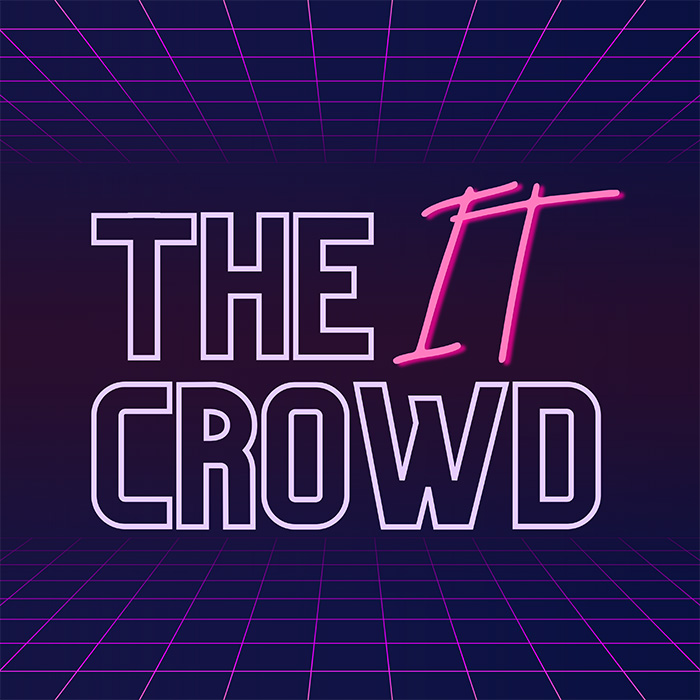
IT Crowd
Project Theme: STEM accessibility and inclusion
Target Audience and Location: Idea Weslaco Pike High School students in Weslaco, Texas.
Vision: All students will have equal access to fun learning opportunities to explore and consider future careers in STEM.
Mission: To provide high school students project-based learning opportunities to help them prosper in STEM industries for an eclectic and successful future.
Project Description: Scholar Ana Garces and educator Scholar Natilisa Rodriguez wanted their project to combat preconceived notions and stereotypes about who STEM opportunities and careers were for. As Latinas, both passionate about increasing women of color representation in STEM, these two eventually landed on their project; to rebrand and reimagine an underutilized and overlooked after school STEM club.
Their goal was to design IT Crowd to be more inclusive to students who might not identify themselves as good at or interested in STEM. It’s centered on fun, hands-on learning opportunities to build curiosity and includes team building activities, guest speakers and field trips to see first-hand what working in various STEM fields is like, from people in their own community. They do this by hosting weekly, interactive after-school sessions with the aim of increasing the number of students interested in STEM and ultimately the number of students who consider and engage in STEM in their future academic studies and/or careers. To close out the academic year, the team is planning a school-wide STEM Fair which will serve as a platform for club members to highlight the exciting projects they’ve worked on to newly admitted students, so they are encouraged to join too.
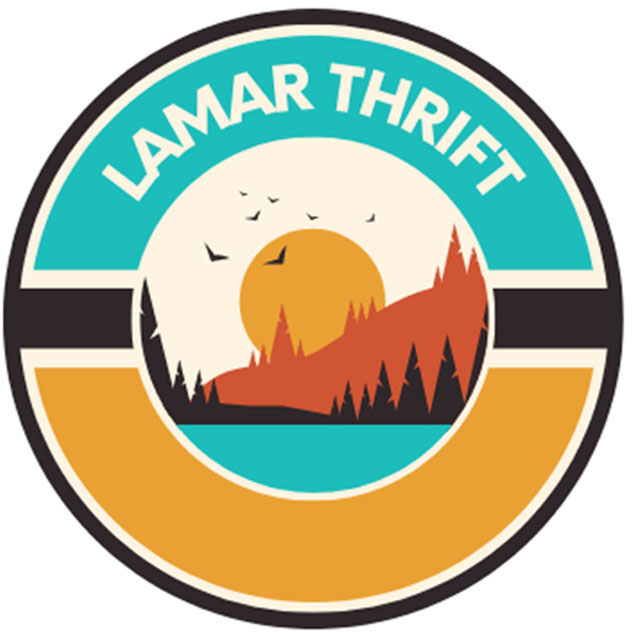
Lamar Thrift
Project Theme: Climate change-caused natural disasters - waste reduction
Target Audience and Location: Lamar High School community in Huston, TX.
Vision: Fostering a safer community by reducing waste going to landfills, mitigating the impact of climate related disasters.
Mission: Lamar Thrift engages the student body by hosting ongoing drives in our community to reduce, reuse and recycle their waste.
Project Description: Scholar Franklin Wu and educator Scholar Sally Woolweaver set out to find a way to create a project that would ultimately be connected to reducing natural disasters caused by climate change since Huston has been impacted by multiple in recent years. Franklin was also inspired by the small Japanese town of Kamikatsu, on an ambitious path with its residents toward a zero-waste life by 2030.
They knew they wanted to leverage the fact that their school has one of the largest National Honor Society (NHS) Chapter’s in the nation, which requires each of its 250+ members to commit to community service. This culminated in them designing a project focused on easy, tangible ways their school community could engage in waste reduction together (mainly following the principles of reduce, reuse, recycle), engaging NHS students to help them, who in turn also received community service hours.
Lamar Thrift plans to hold multiple donation drives throughout the academic year focused on collecting and exchanging goods that otherwise might end up in the landfill. They also have a website set up where people can list things of use that they want to give away or receive, so their school community and its numerous clubs have an easy way to give, seek and trade items as well as find out how to recycle them if they can’t be donated. The team also worked with a community partner to install permanent bins for collecting reusable and recyclable items in key areas at the school.
Watch this team's project presentation at our virtual showcase event!
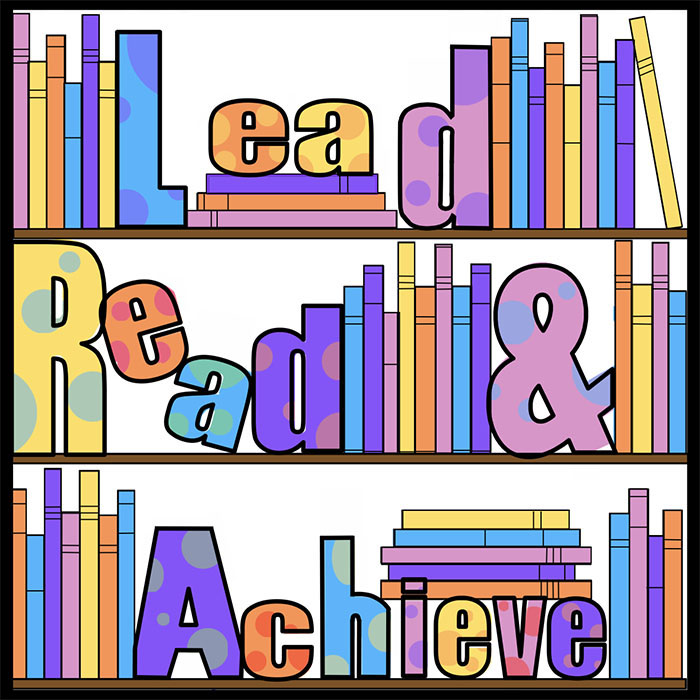
Lead, Read, Achieve!
Project Theme: Literacy
Target Audience and Location: Elementary school students at Richfield Elementary School in Richfield, North Carolina.
Vision: All elementary students enjoy reading at grade level, so they succeed in school and beyond.
Mission: Lead, Read, and Achieve! pairs high school mentors and elementary school students, encouraging them to build their literacy skills in a supportive and engaging environment.
Project Description: Scholar Abigail Wahl and educator Scholar Tina Carter have been passionate about inspiring young students to find joy in reading long before they became Scholars. Through research and their own experience living in a small rural town, they identified that literacy rates were declining at the elementary and high school levels and wanted to do something about it.
They built a partnership with their local elementary school, with the goal of improving literacy early on with younger students. Then they engaged students from their high school whose schedules would allow them to volunteer during the school day. Since September, they have been holding weekly sessions where high school student mentors read and are read to by first, second and fourth grade students.
To ensure the success of weekly reading sessions, the project team sought advice and feedback from school administration, teachers and parents. They surveyed students and parents on what they wanted to read about, to add books to the school library that were interesting, fun and new to the students as well as added some coloring and craft activities to provide some hands-on creative breaks in between reading. As high school mentors increase their leadership skills and rediscover their own love for reading, younger students receive mentorship, encouragement and support in working on their reading skills. The team also partnered with Stanly County Public Library to introduce students to free resources, including how to sign up for library cards and access free audio and e-books.
Watch this team's project presentation at our virtual showcase event!
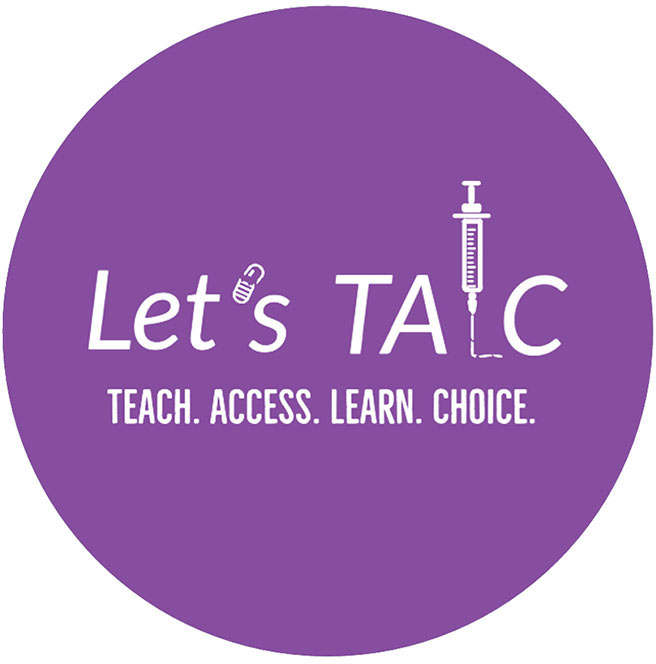
Let’s TALC (Teach, Access, Learn, Choice)
Project Theme: Opioid and drug addiction prevention
Target Audience and Location: Students at Governor Thomas Johnson High School in Frederick, MD.
Vision: Teens have hope, support systems and healthy ways to manage stress and anxiety to prevent drug and opioid use.
Mission: Let’s TALC offers teens opportunities for healthy stress relief and to practice informed decision making about drugs and opioids in a supportive community.
Project Description: Scholar Diya Jha and educator Scholar Paige Spangler knew that they wanted to focus their efforts on raising awareness and preventing opioid and drug addiction, which is a growing issue in their community. This team knew early on they were not interested in telling teens what to do or using scare tactics.
They started to engage with their large school community on how they could create safe spaces where students could connect, enjoy healthy activities, learn information, discuss challenges they were navigating and think critically about choices they were making now and wanted to make in the future related to opioid and drug use.
Let’s TALC focuses on four key points that the team builds into each activity they host: 1) teach about the effects of drug addiction 2) provide access to positive coping strategies 3) offer space to learn from one another and educational resources and 4) enforce that students get to choose what they want to apply with what they learn. Activities include Friday nights in the school gym with games and music, therapy dog sessions, hikes, and meet up dinners at a local pizza restaurant the team has partnered with.
Watch this team's project presentation at our virtual showcase event!

Period.
Project Theme: Period poverty awareness and support
Target Audience and Location: Framingham High School community in Framingham MA.
Vision: The stigma and financial burdens surrounding menstruation are eradicated, so all people can better meet their needs.
Mission: Period. provides students accessible menstrual products while offering period poverty education and advocacy through various promotion efforts.
Project Description: Scholar Amelia Coates and educator Scholar Diane Burke knew they wanted to do something to improve the mental health of students at their school, they just were not sure what or how. Amelia also knew, through her previous efforts, that period poverty advocacy was something she wanted to continue.
So, eventually they combined the two to come up with Period., a project passionate about supporting women’s health and mental health. Since one intersecting issue impacting mental health is poverty, the team decided to focus on period poverty — the struggle, stress and increased economic vulnerability many low-income menstruating people face while trying to afford menstrual products which can further compound many mental health issues.
Through their efforts they have advocated for the need for free, accessible menstruation supplies with district and school administration and staff, building deeper understanding of why their project and cause matters so much. They built a team using their network to create their project as an initiative within a larger pre-existing club that had mission alignment and partnered with their school’s nurse who was already a champion for the health and mental health of their school community. With the nurse, they plan to add menstruation products to monthly supplies already being provided to families that help meet their basic needs. To sustain the project’s need for ongoing supplies, they partnered with Dignity Matters, a non-profit that will supply their school with free, environmentally conscious menstruation products monthly. And finally, team members are working on an ongoing awareness campaign, which will include educational awareness through posters, emails and weekly announcements made over the schools PA system.
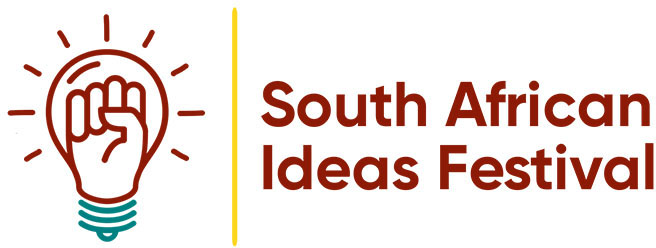
South African Ideas Festival: Money Matters
Founding History: Since 2011, the Bezos Scholars Program has cultivated a special and committed partnership with the African Leadership Academy (ALA). Every year, ALA collaborates with our program to select five students and one educator who are tasked with planning the annual South African Ideas Festival (SAIF). SAIF is an entrepreneurial development festival where youth convene to discuss, learn and design innovative ways to spark change in their community using social entrepreneurship.
Project Theme: Financial literacy
Target Audience & Location: 17–21-year-old African entrepreneurs and business owners located in various regions across Africa. The ALA Scholar team is based in Johannesburg, South Africa.
Vision: A prosperous Africa driven by a network of young African Entrepreneurs
Mission: To host a virtual festival developing a network of young African entrepreneurs by equipping them with financial skills to maintain and grow sustainable and successful businesses.
Project Description: Scholars Michael Olivier, Momo Elfaisal Ahmed, Taha Khorchani, Rehema Bogita, Wazzy Mwambene and their educator Scholar Natalia Sikombe, will host a virtual festival in collaboration with a team of 15 student interns. This year the festival theme is “Money Matters” because the team’s research illuminated that young entrepreneurs needed and wanted to increase their knowledge and skills in the fundamentals of business finance.
They launched a promotional campaign and opened applications to encourage and engage young people from their target audience to apply. They aim to select 30 participants who are operating 30 start-ups and will engage them in 25+ hours of virtual programming over the course of two weeks at the end of February. To prepare, they are working on building out their own curriculum, with support from ALA. They are also engaging trained virtual facilitators while planning to use interactive tools and activities to connect their participants virtually, across their various locations. Some of the topics they will cover during the festival include fundraising, pitching, bookkeeping, budgeting, constructing a financial plan, market research and more. The festival will culminate with a few standout participants winning cash prizes that will go toward their business.
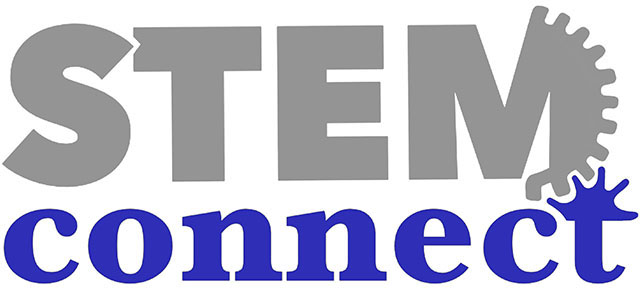
STEM Connect
Project Theme: STEM inclusion and support
Target Audience and Location: STEM Academy students at Harrisonburg High School in Harrisonburg, VA.
Vision: An Academy where every STEM student thrives and belongs.
Mission: Reignite STEM academic confidence through peer mentorship & exposure to real-world STEM careers and applications.
Project Description: Scholar Anish Aradhey and educator Scholar Danae Delozier did a lot of great exploration before eventually landing on their topic focus. Anish is passionate about astrophysics but knew that he really needed to listen to his community to learn what their true needs were.
To do so, he turned to his networks to start exploring options and knew that as a member of his school’s STEM academy, there was an opportunity to partner with them to garner support for his eventual project. To join the academy, students apply in 8th grade and if accepted, are members for all four years of high school. In thinking about his own experience, talking to other students and research, this team identified that many STEM students (about a quarter of each incoming class) struggle with the transition from middle to high school and the academic rigor of STEM courses. He also noticed that during junior year, many students feel disconnected from the academy since they are not required to take specific courses. That’s when the idea for their project really began to take shape.
Their project is centered around pairing academy underclassmen and upperclassmen into partner groups and to host weekly after-school inclusive sessions that include study skills and leadership workshops as well as time for studying and tutoring support. Quarterly, participating students will take a field trip to a local STEM-related location such as a biotechnology company or a local researcher’s lab. The program will close with a final session including food and games celebrating the progress of students in the program.
Watch this team's project presentation at our virtual showcase event!
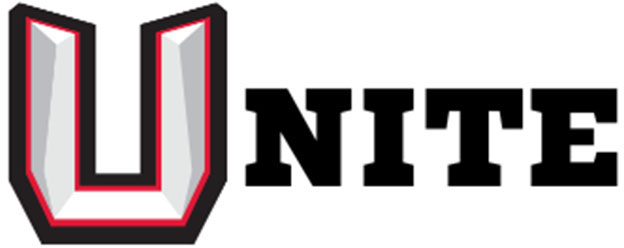
Unite!
Project Theme: Belonging and cross-cultural connection
Target Audience and Location: School community at Union High School in Camas, WA.
Vision: A welcoming and connected school community of diverse students engaged in meaningful extracurricular activities to promote and develop belonging.
Mission: Unite! increases student engagement in school clubs, organizations and activities by hosting club match events and a club showcase.
Project Description: Scholar Jean Lin and educator Scholar Erik Wiitanen knew that there had to be a solution to increasing student engagement in extracurricular activities at their school. They discovered that though their large school had numerous, interesting and diverse clubs, only 20% of students participated in them, a majority of which were AP students. As an involved student on campus, Jean wanted to dig deeper into how she could connect students to pre-existing opportunities while fostering a deeper sense of community.
After some community engagement efforts, which included surveying those highly involved in clubs and those that were not, the team discovered that one main reason why many students were not involved was because they were not aware of or did not fully understand the types of opportunities and clubs that existed. Unite! was born as a way to help clubs better share what they do and why in inclusive and welcoming ways while simultaneously learning what students less involved were most interested in. Through a club match event, interested students filled out a short survey about their interests and hobbies and club leaders created one-minute videos to share more about their club and why a student should join. Team members will then sort through the surveys to match students with potential clubs.
Their goal is to reduce and limit barriers to joining a club, help clubs better promote their opportunities, and support and encourage students to join. They are planning a final event that will be a club showcase so clubs can highlight their activities and success to inspire rising high school freshmen to get involved early in their high school career.
Watch this team's project presentation at our virtual showcase event!
We are proud of all these Scholars, the team and community members they have engaged and the projects they developed to make a positive impact in each of their communities! They are diligently working on carrying out the rest of their project activities before graduation and have been intentional in their planning to ensure projects are sustainable. The goal is for projects to continue for years to come, evolving as new student leadership and adult supporters carry it forward with continued funding support from the program and Bezos Family Foundation. To learn more about Community Change Projects, please visit our website.